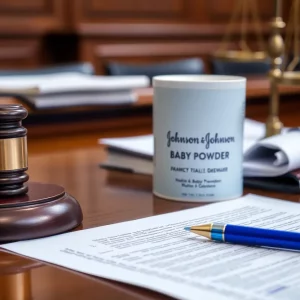PETA Billboard Urges Charleston Locals to Stop Eating Blue Crabs
In an unexpected debut, a billboard sponsored by the prominent animal rights group PETA, prominently placed in downtown Charleston, pleas locals to abstain from consuming blue crabs. The billboard has stirred controversy amidst a crucial time when the regional fishing industry is already dealing with new crabbing regulations.
PETA’s Advocacy for Crab Life
The billboard, located on Spring Street facing Hagood Avenue towards the crossing Ashley River Memorial Bridge, exemplifies a blue crab image with the text, “I’m ME, Not MEAT” and proceeds with, “See the Individual. Please, Go Vegan.” Representing the vegan campaign, PETA aims to promote alternatives such as vegan crab cakes and fish sticks. Amber Canavan, PETA’s vegan campaign manager, expressed that the killing and consumption of aquatic creatures such as crabs are callous acts and that they suffer genuine pain when captured or killed.
Blue Crabs – A Lifeline for Many Charleston Locals
But the local fishing communities view things differently. For people in South Carolina’s coastal regions, capturing and trading blue crabs is not just an economic necessity, it carries emotional resonance too. Terrea Braden, owner of Braden Seafood in Beaufort, has raised her seven children and nurtured a comfortable existence selling blue crabs, a business started by her father almost three decades ago. Apart from running the family-owned seafood store, Braden also manages a sustainable oyster farm using traditional methods to encourage the local ecosystem and aid fish and crustacean populations.
Sustenance and Economics of the Blue Crab Fishery
A report by the South Carolina Department of Natural Resources indicates a substantial decline in the state’s blue crab fishery over the last twenty years. Despite the noticeable drop in the number of blue crabs being caught annually, some crabbers dispute the Department’s data collection methods. According to Stacy Ford, a crabber’s wife, the collection of data from a constant area is misleading, as crabs’ locations change based on environmental factors. She argues that the real challenges for crabbers lie in the increased costs of bait, fuel, and crab pots, which diminish profits.
Regulating Blue Crab Fishing
Unlike most East Coast states, South Carolina has yet to implement blue crabbing regulations. However, the recent legislative session had a bill under consideration that would have regulated blue crab fishing. Although the Senate approved the bill, it was contested in the House due to concerns raised by crabbers, and will need to be reintroduced next year.
Importance of Blue Crabs in Local Cultural
For links with Charleston locals, sharing meals with blue crabs often unravels stories of family traditions. Customers loyal to places like Braden Seafood have been visiting since its inception. Oftentimes, extra blue crabs are purchased during summertime to feast during family reunions. As Kouvarius Butler, owner of Vinnie’s Seafood & Soul restaurant, puts it, they are a “staple” along the coast, just like fish and shrimp.



























